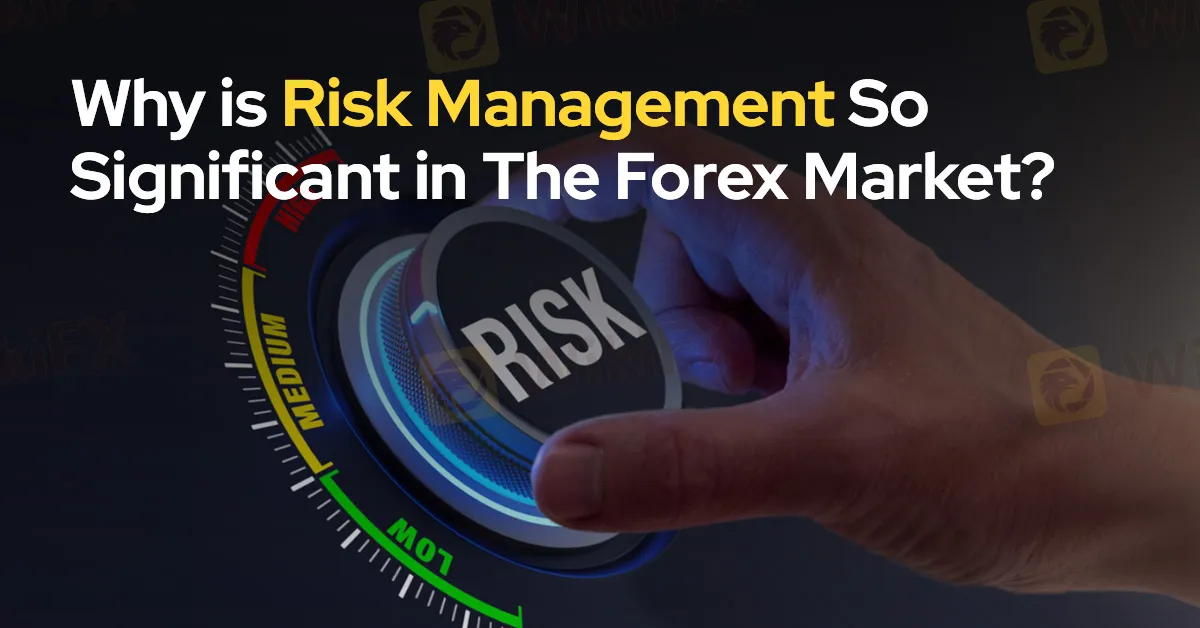简体中文
繁體中文
English
Pусский
日本語
ภาษาไทย
Tiếng Việt
Bahasa Indonesia
Español
हिन्दी
Filippiiniläinen
Français
Deutsch
Português
Türkçe
한국어
العربية
Why is Risk Management So Significant in The Forex Market?
abstrak:Forex trading offers significant profit potential, but it's also fraught with risk. While many traders enter the forex market hoping for financial gain, not everyone succeeds. Many suffer substantial losses, often due to inadequate risk management. Thus, effective risk management is crucial for protecting investments and ensuring long-term success in forex trading.

Understanding Risk Management in Forex
Risk management in forex trading refers to the strategies and practices designed to protect your account and assets. It involves the measurement, assessment, and contingency planning for potential risks. Effective risk management is essential for minimizing potential losses and safeguarding your investments.
One of the key criteria for evaluating forex brokers is their risk management capabilities. WikiFX assesses brokers using several criteria, including:
License Index: The reliability and value of the brokers licenses.
Regulatory Index: The strength of the regulatory oversight.
Business Index: The stability and operational capability of the broker.
Software Index: The quality of the trading platform and instruments.
Risk Management Index: The brokers ability to secure clients' assets in emergencies.
A low-risk management score from WikiFX indicates that a broker might lack the necessary capital or strategies to protect clients' assets effectively.
Case Study: HERO
Consider HERO, a broker that launched in China in 2015. With branches in Shanghai and Shenzhen, HERO provides online forex trading services, including flexible leverage and low minimum deposit requirements. Despite its offerings and services, WikiFX has rated HERO poorly with a score of 1.58/10.

(Source: WikiFX)
The low rating reflects concerns about HERO ability to manage risk effectively. In an emergency, inadequate capital and poor risk management strategies could leave clients vulnerable.

Leverage: A Double-Edged Sword
Leverage allows traders to control larger positions with a smaller amount of capital. While it can amplify profits, it also increases the risk of significant losses. High leverage can be risky, especially for inexperienced traders. Proper understanding and control of leverage are fundamental to trading success.
The Importance of Stop-Loss Orders
Stop-loss orders are a crucial tool in risk management. They automatically close a trade when it reaches a specified loss threshold, protecting your account from excessive losses. Using stop-loss orders is essential, particularly in volatile markets where sudden price movements can quickly erode profits.
Choosing the Right Broker
Selecting a reputable and regulated broker is vital for effective risk management. When researching brokers on WikiFX, look for those with high scores, which indicate better risk management practices. Additionally, check for any complaints or exposure reports related to the broker. Feedback from other traders can provide valuable insights into the brokers reliability.
Conclusion
Effective risk management is crucial for success in the forex market. By understanding and applying risk management strategies, including choosing the right broker and using tools like stop-loss orders, traders can better protect their investments and improve their chances of long-term success. For more information on broker reliability and risk management, visit WikiFX or download the WikiFX App to find the most trusted brokers.

Disclaimer:
Ang mga pananaw sa artikulong ito ay kumakatawan lamang sa mga personal na pananaw ng may-akda at hindi bumubuo ng payo sa pamumuhunan para sa platform na ito. Ang platform na ito ay hindi ginagarantiyahan ang kawastuhan, pagkakumpleto at pagiging maagap na impormasyon ng artikulo, o mananagot din para sa anumang pagkawala na sanhi ng paggamit o pag-asa ng impormasyon ng artikulo.
Broker ng WikiFX
Exchange Rate



